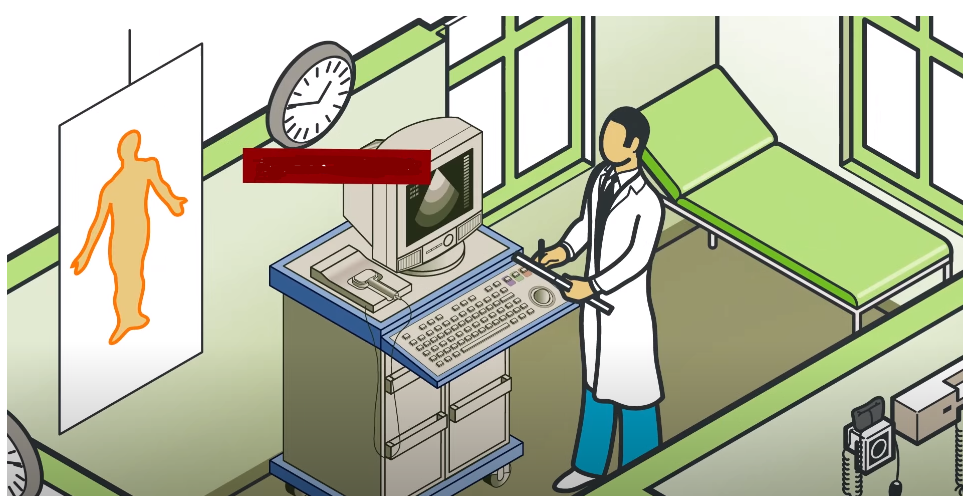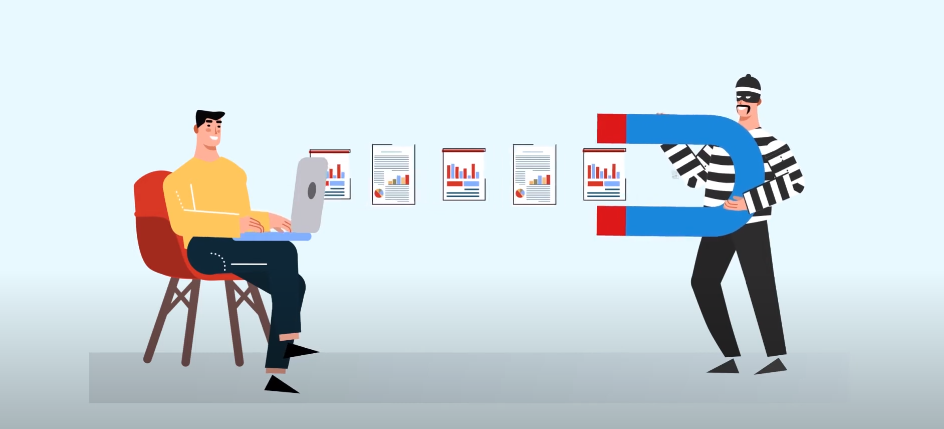Importance of System Security for Health Data

System security is of utmost importance for health data as it contains sensitive and confidential information about individuals’ health and medical history. Health data includes personal information such as name, address, social security number, medical records, and more. This data is highly valuable in the hands of cybercriminals who can use it for identity theft, insurance fraud, blackmail, and other malicious activities. Moreover, the consequences of a data breach in the healthcare industry can be severe, including financial loss, and damage to reputation.
Understanding Health Data

Understanding health data is crucial for healthcare professionals to provide effective care to their patients. Health data can be broadly categorized into two types: clinical data and administrative data. Clinical data includes information about a patient’s medical history, diagnoses, treatments, medications, lab results, and other health-related information. This data is typically collected by healthcare providers during patient care. Administrative data, on the other hand, includes information about a patient’s insurance coverage, and billing information.
Types of Health Data
Health data can be broadly categorized into two types: clinical data and administrative data. Clinical data includes information about a patient’s medical history, diagnoses, treatments, medications, lab results, and other health-related information. This data is typically collected by healthcare providers during patient care.
Administrative data, on the other hand, includes information about a patient’s insurance coverage, and billing information. This data is typically collected by healthcare organizations for administrative and financial purposes.
Significance of Health Data Protection
Health data protection is extremely important for several reasons. First and foremost, patients have a right to privacy when it comes to their health information. Protecting this information helps to maintain patient trust in healthcare providers and organizations. Additionally, health data can be sensitive and personal, and if it falls into the wrong hands, it could be used for nefarious purposes such as identity theft or insurance fraud.
Legal Foundations for Health Data Security
Several legal foundations govern health data security. One of the most important is the Health Insurance Portability and Accountability Act (HIPAA), which sets national standards for protecting the privacy and security of individuals’ health information. HIPAA applies to healthcare providers, health plans, and healthcare clearinghouses, as well as to business associates who handle health information on their behalf.
International Standards and Guidelines
In addition to HIPAA, there are also international standards and guidelines for health data security. The International Organization for Standardization (ISO) has developed several standards related to information security, including ISO/IEC 27001 and ISO/IEC 27002, which provide a framework for implementing and maintaining information security management systems. Other organizations, such as the National Institute of Standards and Technology (NIST) and the European Union’s General Data Protection Regulation (GDPR), also provide guidelines.
Roles and Responsibilities of Key Stakeholders
The roles and responsibilities of key stakeholders in information security vary depending on the organization and its specific needs. However, some common stakeholders include:
1. Management: Management is responsible for setting the tone for information security within the organization and ensuring that appropriate policies and procedures are in place.
2. IT Department: The IT department is responsible for implementing and maintaining the technical controls necessary to protect the organization’s information systems and data.
HIPAA (Health Insurance Portability and Accountability Act)
HIPAA (Health Insurance Portability and Accountability Act) is a federal law in the United States that sets standards for protecting sensitive patient health information. It applies to healthcare providers, health plans, and healthcare clearinghouses, as well as to any business associates that handle protected health information (PHI) on their behalf. HIPAA’s requirements include implementing administrative, physical, and technical safeguards to protect PHI, as well as providing patients with certain rights related to their health information.
HIPAA’s Impact on Health Data Security
HIPAA has had a significant impact on health data security. It has established a framework for protecting sensitive patient health information and has helped to create a culture of privacy and security in the healthcare industry. HIPAA’s requirements have led to the implementation of various security measures, such as encryption, access controls, and regular security assessments, to protect PHI from unauthorized access, use, and disclosure.
Security Standards and Requirements under HIPAA
Under HIPAA, covered entities must implement certain security standards and requirements to protect the confidentiality, integrity, and availability of electronic protected health information (ePHI). These standards and requirements include:
1. Administrative Safeguards: These are policies and procedures that govern the management of ePHI, including risk assessments, workforce training, and contingency planning.
2. Physical Safeguards: These are measures to protect the physical environment in which ePHI is stored, such as access controls.
GDPR (General Data Protection Regulation)
The General Data Protection Regulation (GDPR) is a regulation in the European Union (EU) that governs the protection of personal data of EU citizens. It applies to all companies, regardless of their location, that process the personal data of EU citizens. The GDPR aims to give individuals greater control over their data and to ensure that companies are transparent about how they collect, use, and protect personal data.
GDPR’s Relevance to Health Data Security
The GDPR is highly relevant to health data security as health data is considered sensitive personal data under the regulation. The GDPR requires companies to obtain explicit consent from individuals before collecting, processing, or sharing their health data. Additionally, companies must implement appropriate technical and organizational measures to protect health data from unauthorized access, disclosure, alteration, or destruction. Companies are also required to report data breaches within 72 hours of becoming aware of them.
Consent and Individual Rights under GDPR
Under the GDPR, individuals have several rights regarding their data, including their health data. These rights include the right to access, rectify, erase, restrict processing, and object to the processing of their data. Individuals also have the right to data portability, meaning they can request that their data be transferred to another organization in a machine-readable format.
CCPA (California Consumer Privacy Act)

The CCPA is a privacy law that was enacted in California in 2018 and came into effect on January 1, 2020. It gives California residents certain rights over the personal information that is collected or processed by businesses. These rights include the right to know what personal information is being collected, the right to request that their personal information be deleted, the right to opt out of the sale of their personal information, and the right to non-discrimination if they exercise their privacy rights.
CCPA’s Application to Health Data Security
The CCPA also applies to health data security. Under the CCPA, businesses that collect or process personal information related to a California resident’s medical history, health status, or healthcare services must comply with the law’s privacy requirements. This includes providing notice to individuals about the types of health information being collected, how it will be used, and with whom it will be shared. Additionally, businesses must ensure that appropriate security measures are in place to protect this sensitive information from unauthorized access or disclosure.
Privacy Rights and Enforcement
California residents have the right to know what personal information is being collected about them, and to request that it be deleted or corrected if necessary. They also have the right to opt out of the sale of their personal information. The California Attorney General’s Office is responsible for enforcing the state’s privacy laws, including the California Consumer Privacy Act (CCPA) and the California Online Privacy Protection Act (CalOPPA). Businesses that violate these laws can face significant fines and legal action.
FAQs (Frequently Asked Questions)
What is the importance of system security for health data?
System security for health data is crucial because it ensures the confidentiality, integrity, and availability of sensitive personal health information. This information is highly valuable and can be used for malicious purposes, such as identity theft, insurance fraud, and other types of cybercrime. Moreover, the loss or theft of health data can result in significant harm to individuals, including financial loss, reputational damage, and even physical harm.
Which laws govern the system security of health data?

Several laws govern the system security of health data, including the Health Insurance Portability and Accountability Act (HIPAA) and the Health Information Technology for Economic and Clinical Health (HITECH) Act. These laws establish rules for the secure storage, transmission, and handling of electronic health records (EHRs) and mandate the implementation of technical safeguards, such as access controls, encryption, and audit trails.
What are the security breach notification requirements?
Under HIPAA and HITECH, covered entities and business associates are required to notify affected individuals and the Department of Health and Human Services (HHS) in the event of a security breach involving unsecured protected health information (PHI). The notification must be made without unreasonable delay, but no later than 60 days after the discovery of the breach. The notification must include a description of the breach, the types of information involved, and steps individuals should take to protect themselves from potential harm.
How can organizations ensure compliance with cybersecurity laws?
Organizations can ensure compliance with cybersecurity laws by implementing the following measures:
1. Conduct regular risk assessments to identify potential vulnerabilities and threats to their systems and data.
2. Implementing appropriate technical and administrative safeguards to protect against unauthorized access, use, or disclosure of PHI.
3. Providing regular training and education to employees on cybersecurity best practices and their roles and responsibilities in protecting PHI.
What are the penalties for non-compliance with health data security laws?
The penalties for non-compliance with health data security laws can vary depending on the specific law violated and the severity of the violation. In general, penalties can include fines, legal action, loss of license or accreditation, and reputational damage. For example, the Health Insurance Portability and Accountability Act (HIPAA) can impose fines ranging from $100 to $50,000 per violation, up to an annual maximum of $1.5 million.
Conclusion
In conclusion, privacy laws are important to protect individuals’ personal information from being misused or shared without their consent. It is essential for businesses to comply with these laws to avoid any legal consequences.
